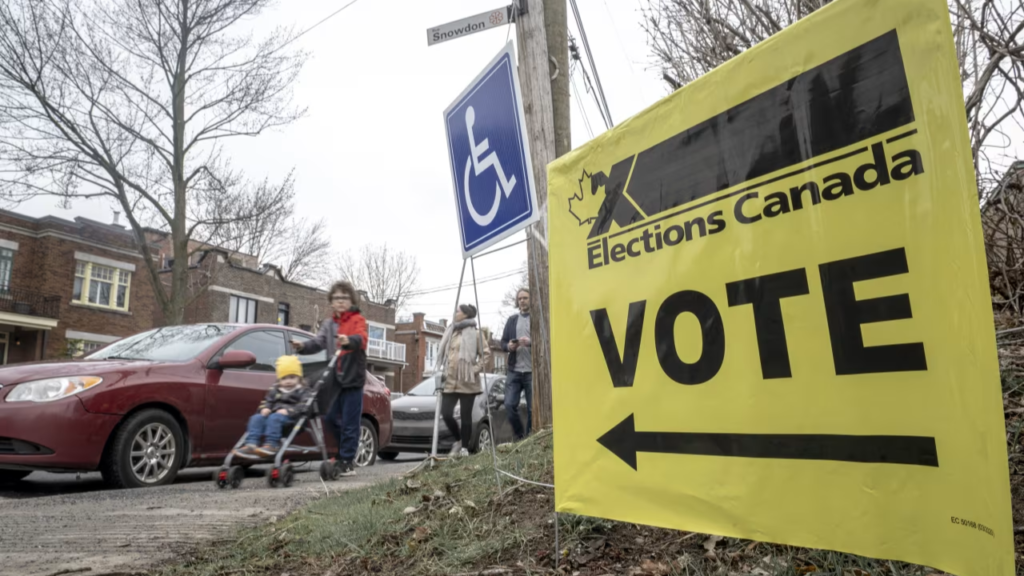Canadians are heading to the polls on Monday to decide whether to keep the Liberal Party in power for another term or hand control to the Conservatives.
Voters will choose between Prime Minister Mark Carney and opposition leader Pierre Poilievre, but this election is also a referendum of sorts on a person who isn’t even Canadian: Donald Trump.
Before Trump won his second term and began making threats against Canada’s economy and sovereignty, even suggesting Canada could become the 51st U.S. state, the Liberals seemed set for defeat.
But Trump’s actions have turned the election into more of a battle over Canada’s future, with his unpredictable stance adding fuel to the political fire.
As Canadians cast their ballots, they are still reeling from the tragic car ramming incident in Vancouver just before the election, which resulted in one death.
The attack, which police confirmed was not terrorism-related, caused a temporary suspension of campaigning. The suspect is reported to have mental health issues, and the tragedy has put a somber tone on the election.
Trump’s tough talk has deeply angered many Canadians, with some choosing to boycott American goods, cancel U.S. vacations, and even vote early.
This has resulted in a record number of early ballots, with 7.3 million Canadians voting before Election Day. Trump’s actions have also put Poilievre and the Conservative Party on the defensive, after they seemed to be cruising toward an easy victory just a few months ago.
Carney recently pointed out the stakes of the election, saying, “The Americans want to break us so they can own us. That’s what’s at risk.”
Poilievre, a populist who campaigned with a similar bravado to Trump, had hoped to make the election about the former Prime Minister Justin Trudeau, whose popularity waned in recent months due to rising food and housing prices and increasing immigration.

But Trump’s rhetoric quickly became the focal point of the campaign, and Poilievre’s approach could cost him in the end.
Historians have drawn parallels between Poilievre and Trump, noting that both appeal to a sense of grievance.
Robert Bothwell, a Canadian historian, explained that Poilievre’s populist message is similar to Trump’s message of retribution. “It’s like Trump standing there saying ‘I am your retribution,’” Bothwell said.
This election has been deeply shaped by foreign policy, with Trump’s actions dominating discussions. It’s been more than 30 years since a Canadian election was so focused on international relations, and the stakes are high.
Canada has been grappling with a cost-of-living crisis, and more than 75% of its exports go to the U.S., making Trump’s threat to impose tariffs a real concern for Canada’s economy.
Both Carney and Poilievre have vowed to renegotiate the free trade deal with the U.S. to address the uncertainty hurting both economies.
Carney, who has experience managing economic crises, having previously run Canada’s central bank and the Bank of England, is seen as well-equipped to handle the growing tensions.
Trump’s rhetoric about Canada becoming the 51st U.S. state resurfaced just last week, with the former president claiming that Canada “would cease to exist as a country” if the U.S. stopped buying its goods. Trump has previously downplayed the idea, but his comments are still causing concern in Canada.
Carney has called for a strong mandate from voters to tackle the threat to Canadian sovereignty. “President Trump has some obsessive ideas, and that is one,” Carney said, referring to Trump’s annexation threat.
“It’s not a joke. It’s his very strong desire to make this happen. It’s one of the reasons why this crisis is so serious.”
Disclaimer- Our team has thoroughly fact-checked this article to ensure its accuracy and maintain its credibility. We are committed to providing honest and reliable content for our readers.






